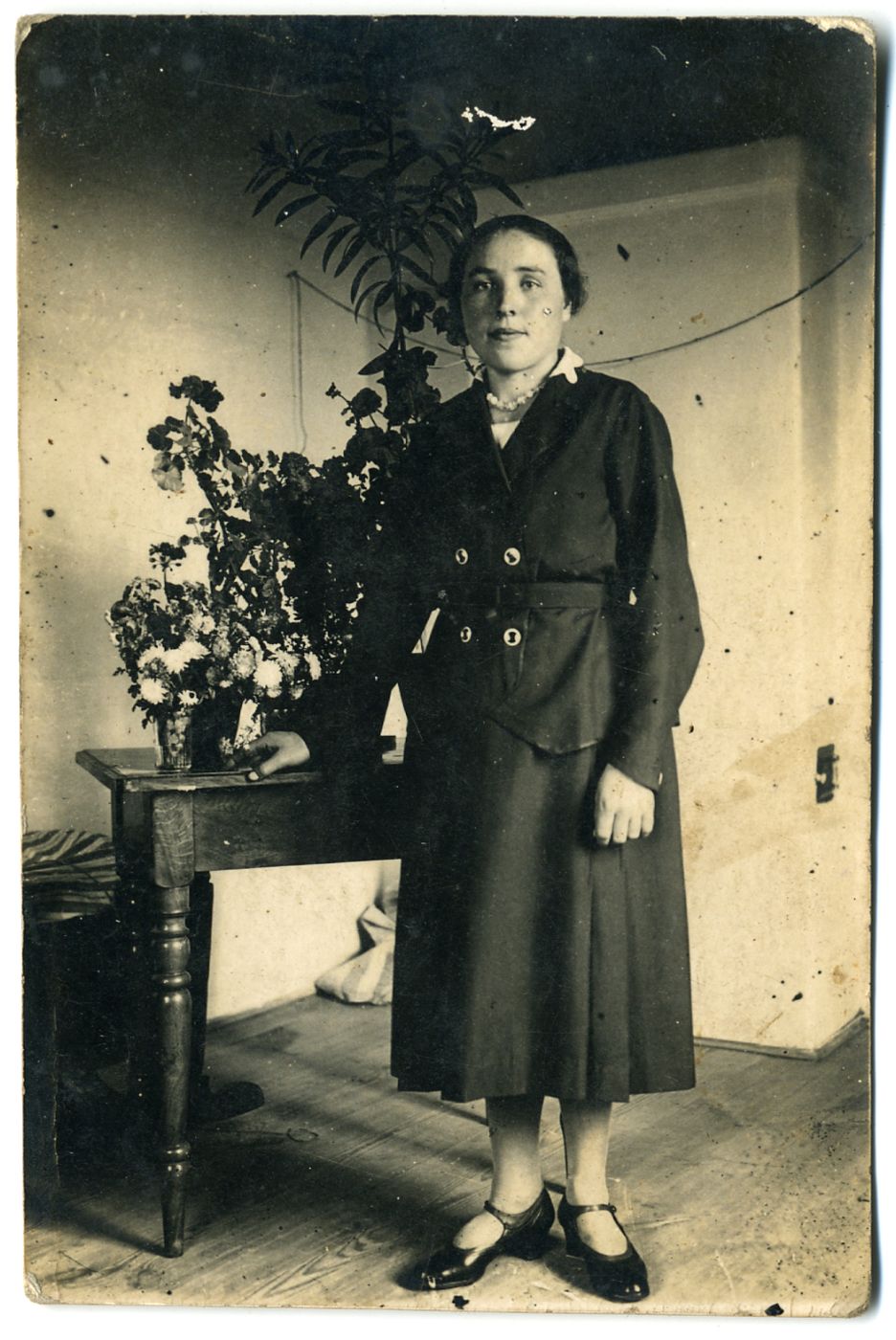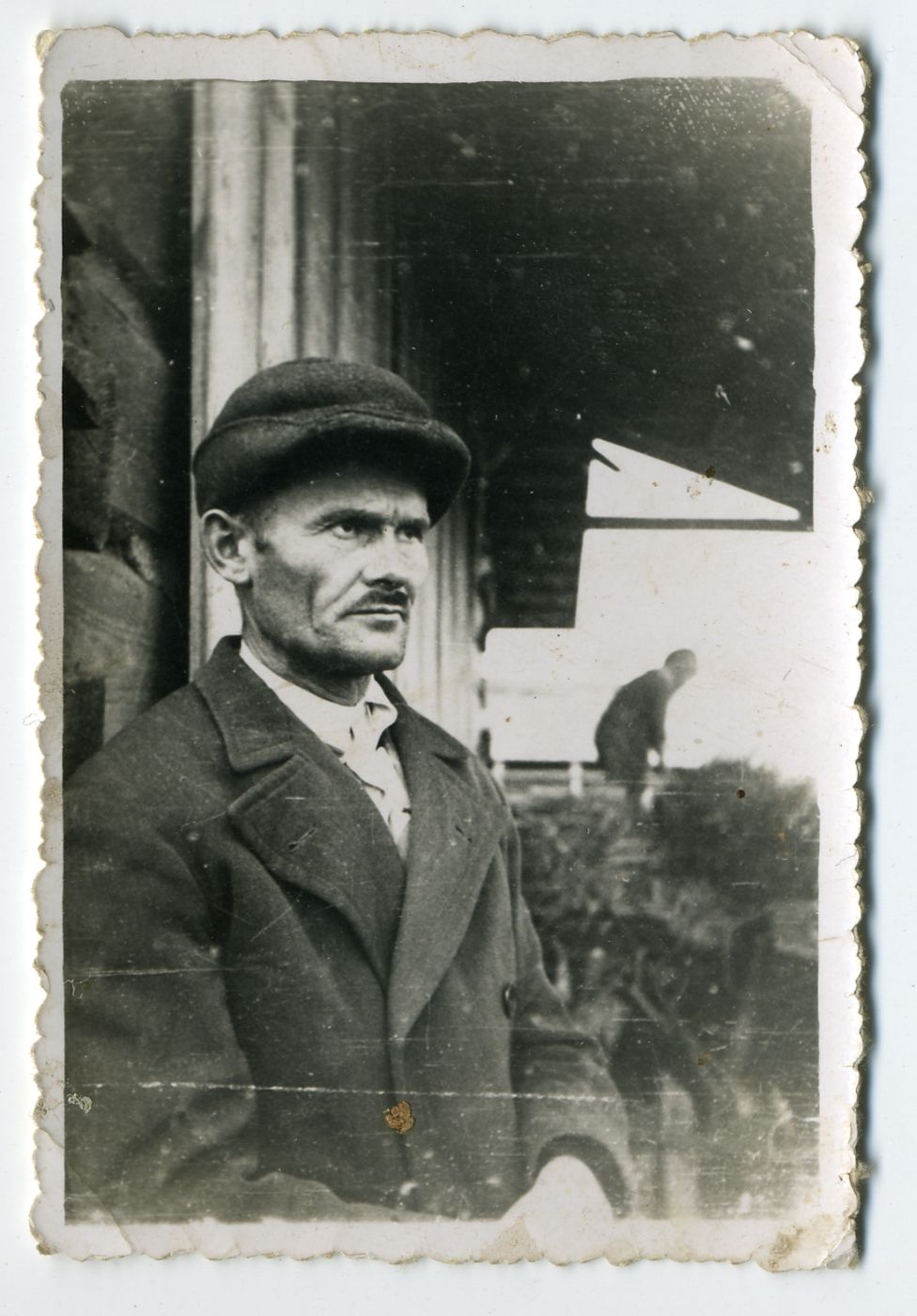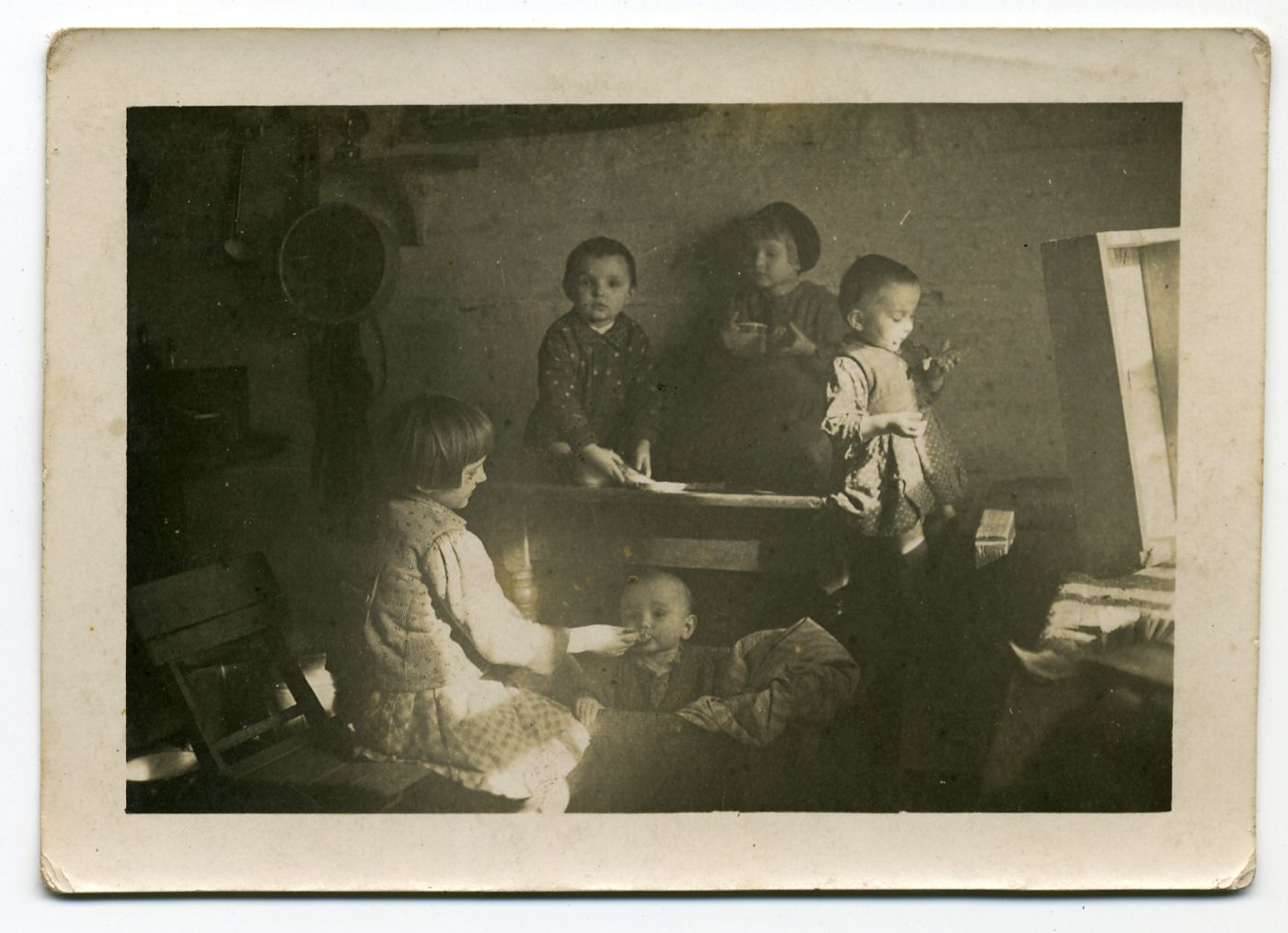Wiktoria and Józef Ulma
Społeczność
The Ulma family
Józef Ulma (2 March 1900 – 24 March 1944)
He was the son of Marcin and Franciszka (née Kluz). His parents had a three-hectare farm, which he helped with from a very young age, He completed a four-grade primary school and was called up for military service in 1921. In 1929, he began studying at the agricultural school in Pilzno, which he graduated with very good results.
He set up the first fruit tree nursery in Markowa and soon began to make a living from the sale of saplings. It was probably thanks to him that grafted apple trees appeared in the area. In addition to horticulture, Józef Ulma was a promoter of fruit and vegetable cultivation; he was also involved in beekeeping and silkworm breeding. His ingenuity and commitment in this area were rewarded at the District Agricultural Show in Przeworsk, which was organised by the Regional Agricultural Society in 1933.
He was a man with broad horizons: part of his book collection, bearing the ex-libris "Home Library – Józef Ulma", has been preserved to this day. The books included an electrical engineering handbook, a photography handbook, a book on the use of wind in the economy, and a publication on the people of Australia. He subscribed to the "Wiedza i Życie" [Knowledge and Life] monthly and was able to construct a bookbinding machine and a home wind turbine, making him the first person in the village to light his house with electricity rather than a paraffin lamp.
Józef's greatest passion was photography. At first, he used a self-assembled camera, but with time he started to use professional equipment, thanks to which he documented the everyday life of Markowa's inhabitants. Many of the photographs have survived to this day – some of them are presented on this website.
He was a keen community worker. He was active in the Catholic Men's Youth Association and later in the Polish Rural Youth Union, where he served as librarian and Chairman of the Agricultural Education Committee at the District Board. For some time he was also the manager of the Dairy Cooperative in Markowa.
After his marriage to a 12 years his younger Wiktoria, and after the birth of subsequent children, he decided to move with his family to the eastern edge of the Lwów Voivodeship, where landed estates were being parcelled out. In 1938, the Ulmas bought 5 ha. of black soil land in Wojsławice near Sokal. However, the move did not happen due to the outbreak of war. In September 1939, Józef took part in the defensive war.
Wiktoria Ulma, née Niemczak (10 December 1912 – 24 March 1944)
She was born as the seventh child of John and Franciszka, née Homa. Her mother died when she was six years old, and a year before her marriage she was orphaned by her father. Like Józef, she was socially engaged. She played in the village theatre and attended courses organised by the People's University in Gać.
In 1935, she married Józef and one by one their children were quickly born: Stanisława (born 18 July 1936), Barbara (born 6 October 1937), Władysław (born 5 December 1938), Franciszek (born 3 April 1940), Antoni (born 6 June 1941) and Maria (born 16 September 1942). At the time of her death, she was heavily pregnant with her seventh child, which she began to deliver as a result of the tragic situation.
The Markowa massacre
Before the outbreak of the Second World War, there were at least 120,000 Jews living in the Subcarpathian region. There were around 120 people of the Mosaic faith in the almost 4,500-strong town of Markowa alone. Their houses did not form a compact cluster but were scattered throughout the village. They also had three prayer houses, and for major holidays they attended the synagogue in Łańcut. The Markowa Jews made their living mainly from trade, and only a few were farmers.
Józef Ulma was on very good terms with the Jews even before the war. Several Jewish families lived next door to him, and he traded the vegetables he grew with others.
The wartime terror began to take its toll very quickly. On 23 November 1939, an order came into force that all Jews over the age of 10 should wear armbands with a Star of David on their arms. Other restrictions soon followed: compulsory work, a ban on using means of transport or leaving the place of residence without permission. Jews were placed in ghettos or sent to labour camps.
In 1941, the Germans decided on a "final solution to the Jewish question" and the fate of the Jews became tragic. Almost 6 million European Jews died in the death camps, as a result of shootings, in gas chambers, and from exhaustion. By the end of 1942, German Reich functionaries had murdered almost 1.3 million Jews from the Warsaw, Radom, Lublin and Kraków districts, more than half a million from the Galicia district and about 130,000 from the Białystok district. Still in 1941, the Germans – as opposed to the situation in the occupied countries in Western Europe – introduced the death penalty in the Polish lands for providing any kind of help to Jews. About a thousand Poles were murdered for this reason.
Operation "Reinhardt," which had been in progress since March 1942 and aimed at the extermination of all Jews in the General Government and the Białystok District, began to be implemented in and around Łańcut in late July and early August 1942. The Germans banned Jews from the Markowa area and began deporting them to the labour camp in Pełkinie and then to the extermination camp in Belzec.
At that time, some of the Markowa Jews asked the Ulmas for help. Initially, Józef helped them build dugouts on the outskirts of the village. We know of a family of four, called the Ryfkas, whom he helped build a shelter in a ravine near a stream. However, this was not an effective way to survive – the German gendarmes, together with the blue policemen, conducted ad hoc searches for Jews: both in the village and in the surrounding area.
On 13 December 1942, the Germans ordered the village head of Markowa to organise a search operation. The latter informed the villagers of the planned operation before noon, thus enabling those in hiding to better secure their hideouts. At least 26 residents, mostly coerced, found 25 of the approximately 54 Jews in hiding
Those captured were locked up in the so-called municipal jail located at the main crossroads in the village. On 14 December 1942, they were all shot by the German gendarmerie from Łańcut. Despite this operation, 29 Jews continued to be hidden in Markowa after December 1942, 21 of whom lived to see the end of the occupation.
Eight were murdered along with the Ulma family on 24 March 1944.
Jews were hidden in Markowa by several families, but the Ulmas took in the largest group. This took place most likely in December 1942. They were friends of the Ulmas from Łańcut: Saul Goldman with his sons Baruch, Mechel, Joachim and Mojżesz, and the Ulmas' neighbours from Markowa – Gołda Grünfeld and Lea Didner, daughters of Chaim Goldman – a relative of the aforementioned Saul. Lea was in hiding with her little daughter named Reszla.
Saul Goldman was about 70 years old and traded in cattle. He lived in Łańcut, but was well known in Markowa, where he often came on business. Lea and Gołda's parents were Chaim and Estera Goldman, one of the few Jews who were both farmers and traders, running a shop in Markowa.
We know that Józef Ulma, together with the Goldmans, was involved in tanning hides and skins, which he sold to earn a living. This was made possible by the location of the Ulmas' house on the outskirts of the village. The Jews who hid at their house probably paid for their upkeep; however, there is no reason to believe that the Ulmas helped them in return for financial gratification. Even at the end of the occupation, Gołda Grünfeld still had the gold valuables, which were found next to her corpse by German gendarmes.
However, the large quantities of food that Wiktoria was buying drew the attention of those around them and suggested that family members were not the only people living in the house. Who and when reported the hiding Jews to the Germans remains a mystery. It was probably Włodzimierz Leś – a constable of the Polnische Polizei, i.e. a blue policeman from Łańcut. According to the underground's findings, he was an exceptionally zealous collaborator with the German occupiers. The documents also suggest that before the Goldmans turned to the Ulmas for help it was Leś who, for money, helped them hide in Łańcut and later drove them out, while keeping their property.
On the night of 23/24 March 1944, five gendarmes and four to six blue policemen arrived in Markowa. The group was commanded by the chief of the Łańcut gendarmerie, lieutenant Eilert Dieken.
Three Jews were shot while they were sleeping; the others were killed soon after. Józef Ulma and his pregnant wife Wiktoria were led out in front of the house. Then, after conferring with his subordinates, Dieken ordered the children to be shot as well. In a few moments, 17 people were murdered – including the child being born.
After the massacre was over, the Germans proceeded to loot the farm and items belonging to the murdered. The villagers were forced to bury the dead. Two pits were dug – the Ulmas were buried in one and the Jews in the other. Finally, the perpetrators held a carousal at the execution site. In January 1945, the bodies of the Ulma family were exhumed and moved to the local parish cemetery. Two years later, the remains of the murdered Jews were removed and buried in the Jagiełła cemetery together with the victims of the massacre of 14 December 1942.
The only gendarme tried for the Markowa massacre was Josef Kokott. As a result of the trial, which took place before the Voivodeship Court in Rzeszów in 1958, he was sentenced to death, which was later commuted to life imprisonment. After a change in the law, the sentence was reduced to 25 years' imprisonment. He died in a Bytom prison in 1980.
Meanwhile the blue policeman Włodzimierz Leś was tried and punished by the Polish Underground State. On 11 September 1944, the Polish underground carried out his death sentence. The gendarme commander, Eliert Dieken, became a police officer in Esens in Lower Saxony after the war. He was no longer alive when, in the 1960s, the public prosecutor's office at the Dortmund Regional Court opened an investigation into crimes committed by the German gendarmerie in the occupied district of Jarosław. He died in 1960 as a respected citizen. Both he and the other participants in the murder were never brought to justice.
In 1995, Józef and Wiktoria Ulma were honoured with the Righteous Among the Nations medal. In 2010, they were posthumously awarded the Commander's Cross of the Order of Polonia Restituta by President Lech Kaczyński. The poor couple from Markowa became patrons of schools and streets. Their name is also borne by Poland's only Museum of Poles Saving Jews during the Second World War, which opened in March 2016 in Markowa. On 10 September 2023, the beatification of the Ulma family will take place in Markowa.
24 March – the day of the death of the Ulma family from Markowa – has been celebrated since 2018 as the National Day of Remembrance of Poles Saving Jews under German occupation to commemorate all those who helped the Jewish people despite the immense danger.

